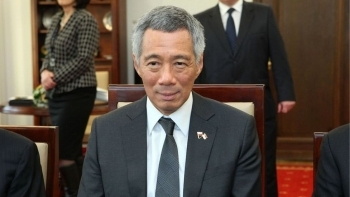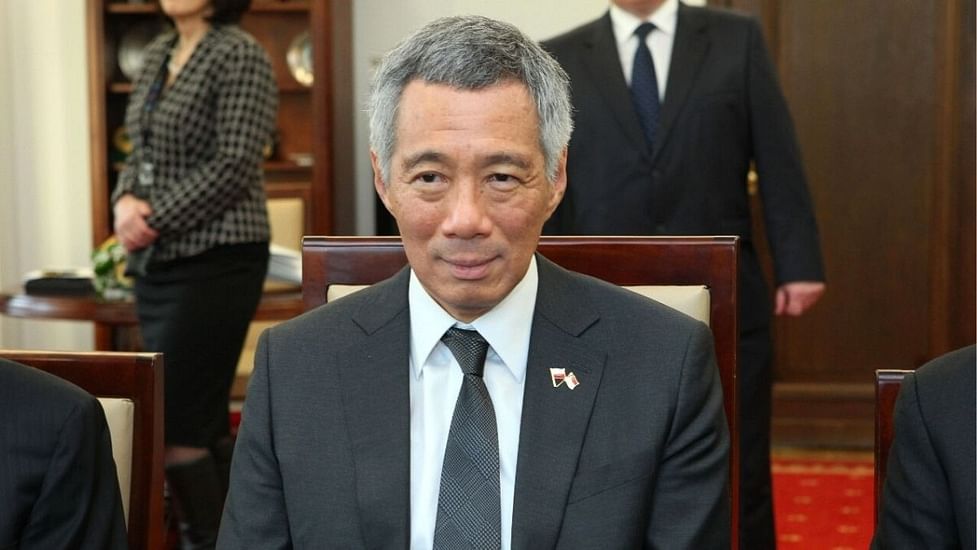
 A. J. Philip
A. J. Philip

Dear Mr Prime Minister,
Thanks to YouTube, I was able to listen to a portion of your speech made in your parliament. I do not listen to such speeches, as there are 195 countries in the world, each having some kind of a legislative body where debates take place on most days. Why I made an exception was the comment you made on India’s first Prime Minister Jawaharlal Nehru (1889-1964) while taking part in a debate.
I was greatly impressed by the simple dress that you wore, unlike another prime minister I know who sometimes changes his costumes, not just dresses, several times a day. You delivered your speech in a clear, concise style. Let me quote what you said for the benefit of my readers:
“Things start off with passionate intensity. The leaders who fought for and won independence are often exceptional individuals of great courage, immense culture, and outstanding ability. They came through the crucible of fire and emerged as leaders of men and nations. They are the David Ben-Gurions, the Jawaharlal Nehrus, and we have our own too."
Lee continued, “Imbued with enormous personal prestige, they strive to meet the high expectations of their peoples to build a brave new world, and shape a new future for their peoples, and for their countries. But beyond that initial fervour, succeeding generations often find it hard to sustain this momentum and drive”.
“Nehru's India has become one where, according to media reports, almost half the MPs in the Lok Sabha have criminal charges pending against them, including charges of rape and murder. Though it is also said that many of these allegations are politically motivated”.
True, there are some MPs who face charges of terrorism. There are some who were prevented by the courts from entering their states. At the same time, there are some who were implicated in criminal cases because of their political activities. They are, therefore, not criminals by the strictest definition of the term. MPs have to mention all the cases against them while contesting elections.
But for the Internet, we in India would never have known what exactly you said in your Parliament. Unfortunately, our government is very sensitive and made an exception to your speech. It even called your envoy to the foreign office and told him about India’s feelings.
The truth is that nobody, least of all a country like India, would like to be lectured to. You, perhaps, do not know that India is now ruled by a party and a leader who believe that Nehru was the fountainhead of all things evil and bad.
Fifty-eight years after Nehru’s death, he is still blamed for the failures of those who rule the country. Recently, a company was accused of cheating a consortium of banks to the tune of over Rs 22,000 crores. As a wit commented, Nehru would be blamed for it, because the main cheat was born during Nehru’s lifetime.
The history of Singapore has always fascinated me. It was once part of Malaysia and people from India did not need any visa as it was a British colony. My wife was born there. In fact, there were many people from Kerala in Singapore.
You know one of them as CV (Chengara Veettil) Devan Nair. He was a great trade union leader and became the president of Singapore. Alas, he became a victim of alcoholism and lost his political moorings.
In India, Mahatma Gandhi is called the Father of the Nation while Nehru is called the Builder of the Nation. In the case of Singapore, these honorific titles apply to Lee Kuan Yew, who stepped down as prime minister in 1990. If my reading of Singapore’s history is correct, you should have become prime minister much earlier.
The history of Singapore would have been slightly different if the prime minister who succeeded Lee Kuan Yew was able to build a power base to rival that of his predecessor. You were diagnosed with cancer providing the incumbent a chance to consolidate his position.
Fortunately, you were cured of your disease and you were able to reestablish the hegemony of you two Lees with remarkable ease. It is a measure of your close ties with the father of Singapore that when you became prime minister in 2004, Lee Kuan Yew remained in the Cabinet as “minister mentor”.
If Goh Chok Tong, as prime minister, succeeded in marginalising the Lees — an unlikely prospect — the situation in Singapore would have been different. Similarly, if the Congress party was in power in the country, it would have gone to town with your praise for Nehru.
Singapore is a tiny country compared to India which is a subcontinent. Even so, Singapore’s achievement of becoming a First World country from a Third World country is truly remarkable. It may take many decades for India to reach the stage of progress Singapore has achieved but it is certainly on the way, though divisive elements have been trying their best to create problems on the basis of religion, language, dress, caste, etc.
I read the autobiography of Lee Kuan Yew and I have a fair idea of the condition of the people in Singapore before it got liberated from the British yoke. Unlike Nehru who was born with a silver spoon in his mouth and could afford to go to London for his education, Lee had to get a scholarship to go there. His mother had to make sacrifices to let him have the best of education at that time.
When Nehru took over as prime minister, India’s condition was pathetic. There are people who ask why the public sector was allowed to flourish and why the licence raj, under which people had to get a licence to start a factory or business, came into being. They do not realise that there was virtually no private sector worth the name at that time.
I am a journalist. Newspapers need newsprint. Anybody could set up a newsprint plant but nobody wanted to. Finally, the government had to set up a newsprint factory at Nepanagar in Madhya Pradesh. The quality of the newsprint was not as good as the newsprint imported from Canada.
Newspapers could write thunderous editorials about the quality of newsprint but their owners did not venture into the field to manufacture newsprint. When India was partitioned and West Pakistan and East Pakistan were created, India lost Lahore which was the Capital of the undivided Punjab.
India could have declared Amritsar as the Capital but it did not want the capital to be close to the India-Pakistan border. That is how a new capital was built at Chandigarh. Nehru wrote a letter to the French architect who was chosen to plan the city that India could not afford to pay a salary to him. Instead, he would be provided a car, staff and a house.
It is easy to blame Nehru but like Lee Kuan Yew, he had to begin from scratch. Nehru was truly an internationalist. You may be happy to know that Nehru wrote a letter to Madame Chiang Kai-shek when he was in jail in 1942. She was a Christian and had an excellent command of the English language.
They had met earlier in India and China and became good friends. Of course, there are people in India who make fun of Nehru’s friendship with the wives of leaders like Lord Mountbatten. He was kept in a fort at Ahmednagar when he wrote the long handwritten letter.
Nehru concluded his letter, "I hope you are well and keep in good cheer. I may not mention this place where I am kept except to say that I am somewhere in India. But it is a small matter where I am, for my mind is untamed and unbound, and it wanders where it will, crossing seas and mountains and visiting far-away countries. And this mind carries always with it the precious treasure of my friendship with you and the Generalissimo”.
He sent the letter to her at the address of the Chinese Commissioner, New Delhi. The letter was detected by the censor and it was not forwarded. It is a pointer to how international Nehru was unlike any other Indian leader. It was for this reason that his name came to your mind while addressing your Parliament.
Things have changed in India a lot since the death of Nehru. Gandhi and Nehru were very close. Gandhi had four sons but I doubt whether he was closer to any of them than he was to Nehru. They represented two aspects of India. They had their differences on key issues of development.
One thing that united them was their commitment to the idea of India that included different states, different cultures, different religions, different languages and different climatic conditions, all united by the thread of a common nation. Unlike the present prime minister who reads out prepared manuscripts in what is known as Mann ki Baath, Nehru used to write letters to the chief ministers. They contained his thoughts on contemporary issues.
For instance, in September 1953, he urged chief ministers to "create a sense of partnership in every group and individual in the country, a sense of being a full sharer in the benefits and opportunities that are offered". Six months later, he reminded them that "it is always the duty and obligation of the majority to win the goodwill of the minorities by fair and even generous treatment”.
Nehru was not an atheist but he did not wear his religion on his sleeves. He did not distinguish people on the basis of their religion or dress. He was a great democrat who granted even his critics a place in his Cabinet. They were given freedom to pursue their plans subject, of course, to the policies formulated by the Congress and approved by the Cabinet.
In other words, his ministers had the freedom to operate within their domain and they were not just megaphones of the PM.
Of course, Nehru had his failures. He failed to identify illiteracy as the greatest problem facing the nation. He should have spent a greater share of the GDP on school education. The people would have on their own found ways to improve the lot of their families.
He also had challenges like wars with neighbours and skirmishes on the border. It took many years for him to settle the problems created by the world’s largest migration of people from India to Pakistan and Pakistan to India. He was once considered representative of the youth of India.
Towards the end of his life, Nehru had become “an old man, looking frail and fatigued, with a marked stoop in his gait, coming down the gangway (of Parliament) with slow, faltering steps, and clutching the backrests of benches for support as he descended”.
India is now ruled by a party which believes that India should have been declared a Hindu nation soon after the creation of Pakistan. They think that it was Nehru’s popularity and pan-India following that frustrated their attempt. The assassination of Mahatma Gandhi by a Hindu fanatic made their task more onerous. They had to wait longer to achieve their aim.
In Makers of Modern Asia, edited by Ramachandra Guha sociologist Andre Beteille has been quoted as saying, “the posthumous career of Jawaharlal Nehru has come increasingly to reverse a famous Biblical injunction.
“In the Bible it is said that the sins of the father will visit seven successive generations. In Nehru's case, the sins of daughter, grandsons, granddaughters-in-law and great grandson and great granddaughter have been retrospectively visited on him”. However hard some people try to obliterate the name of Nehru, there will be people like you who will remember Jawaharlal Nehru for his vision to develop India into a sovereign, socialist, secular, democratic Republic.
Yours etc
ajphilip@gmail.com